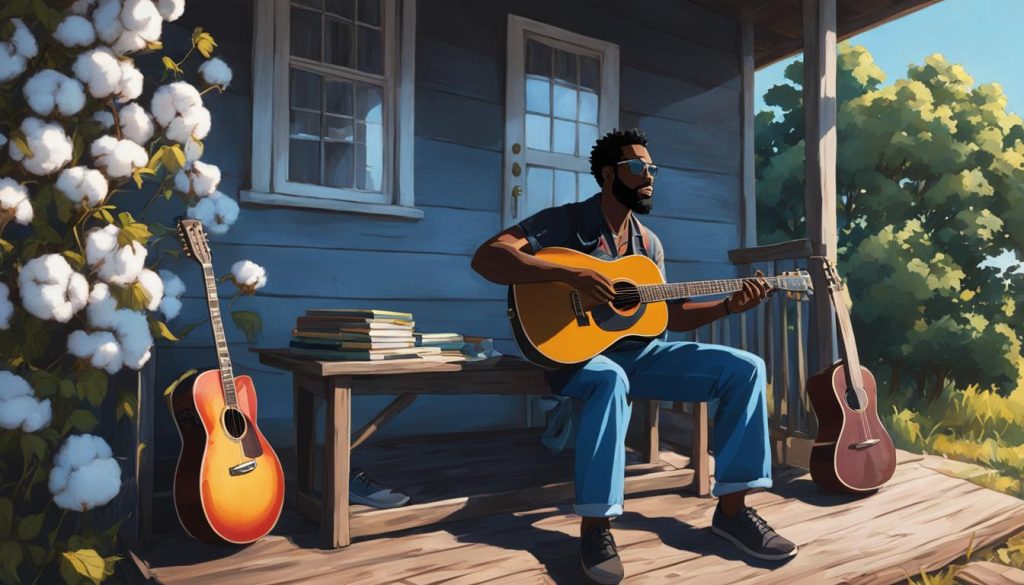Exploring the Depth and Soul of Blues Music
Blues music is a genre that has captured the hearts of millions around the world. Its rich history, emotional expressiveness, and cultural impact have made it a beloved form of music for generations. From its origins in the African American community to its iconic artists who have shaped the genre, blues music has a depth and soul that resonates with listeners.
Key Takeaways
- Blues music has a rich history and cultural impact.
- It is known for its emotional expressiveness and soulful melodies.
- The genre has been shaped by influential artists such as Muddy Waters and B.B. King.
- Blues music has continued to impact other musical genres over time.
- This genre has a timeless quality that resonates with listeners on a profound level.
The Origins and Evolution of Blues Music
Blues music has an important place in American history, with its roots tracing back to the African American communities in the southern United States. Originating from the emotional expression of the struggles and hardships faced by African Americans, blues music incorporated elements of traditional African music, along with European and American influences. The blues music style gradually evolved over time, influenced by various musical traditions such as jazz, gospel, and folk.
The evolution of blues music can be divided into different eras. The early blues tradition, also known as country blues, emerged in the late 19th century and was characterized by simple guitar riffs, raw vocals, and lyrical themes of sorrow and poverty. As blues music became more popular, it also began to incorporate elements of swing and jazz music, eventually leading to the emergence of urban blues in the 1940s and 1950s. Urban blues featured a full band with horns, and was associated with the migration of African Americans from the rural South to the urban North.

The 1960s saw a revival of interest in blues music, which brought the genre to new audiences around the world. Blues music continued to evolve, with newer sub-genres such as electric blues, soul blues, and blues rock emerging over time. Today, blues music remains an essential component of American music, influencing many other genres and producing some of the most iconic musicians of all time.
The Expressiveness and Influential Artists of Blues Music
Blues music is known for its emotional expressiveness, which allows it to connect with listeners on a deep, personal level. The genre is characterized by soulful melodies, heartfelt lyrics, and powerful vocal performances that convey a range of emotions, from despair and heartbreak to joy and celebration.
Blues music has been shaped by many influential artists, each with their own unique style and contribution to the genre. Some of the most notable blues musicians include:
| Artist | Contribution |
|---|---|
| Muddy Waters | Considered the “father of modern Chicago blues,” Muddy Waters was known for his powerful guitar playing and raw, gritty vocals. |
| B.B. King | Renowned for his smooth, elegant guitar playing and emotive vocals, B.B. King was one of the most successful blues musicians of his time. |
| Etta James | With her soulful voice and powerful stage presence, Etta James earned her place as one of the greatest female blues singers of all time. |
These influential artists and many others have helped to shape and define the blues music genre, inspiring generations of musicians to come.

The expressiveness of blues music and the iconic artists who have contributed to its evolution have made the genre a beloved and lasting influence on American music.
Conclusion
In conclusion, blues music has a rich history that has been shaped by African American traditions, and it has evolved into a genre that has influenced many other styles of music. Its ability to express emotions and connect with audiences is unmatched, making it a unique and powerful form of musical expression.
The genre has produced many iconic artists whose contributions have helped to shape and define the blues sound. From Muddy Waters to B.B. King and Etta James, these artists have left an indelible mark on the genre that continues to resonate with people today.
Blues music’s enduring legacy is a testament to its cultural relevance and continued influence on modern-day music. It remains a vital part of American musical culture, and its depth and soul continue to captivate audiences worldwide.
FAQ
What is blues music?
Blues music is a genre that has a rich history and is known for its emotional expressiveness. It originated within African American communities in the United States and has had a significant cultural impact.
How did blues music evolve over time?
Blues music has evolved from its African American roots, incorporating elements from various musical traditions such as jazz, gospel, and folk. It has adapted, transformed, and grown throughout history, remaining a powerful form of musical expression.
What makes blues music so expressive?
Blues music is known for its soulful melodies, heartfelt lyrics, and powerful vocal performances. It connects with listeners on a deep emotional level, conveying raw emotions and experiences.
Who are some influential artists in blues music?
There have been many influential artists in blues music, including Muddy Waters, B.B. King, and Etta James. These artists have made significant contributions to the genre and have helped shape its sound and style.
